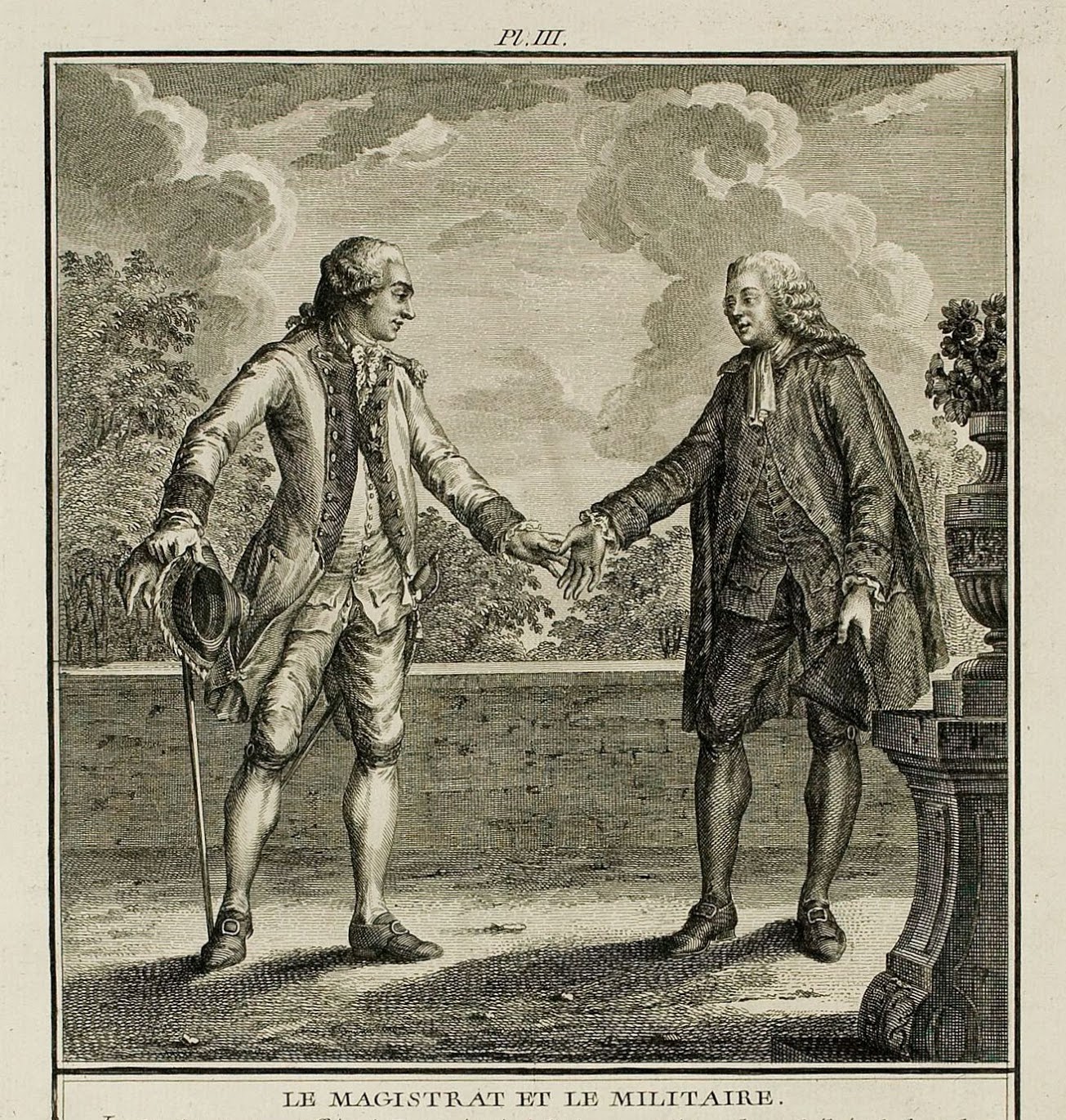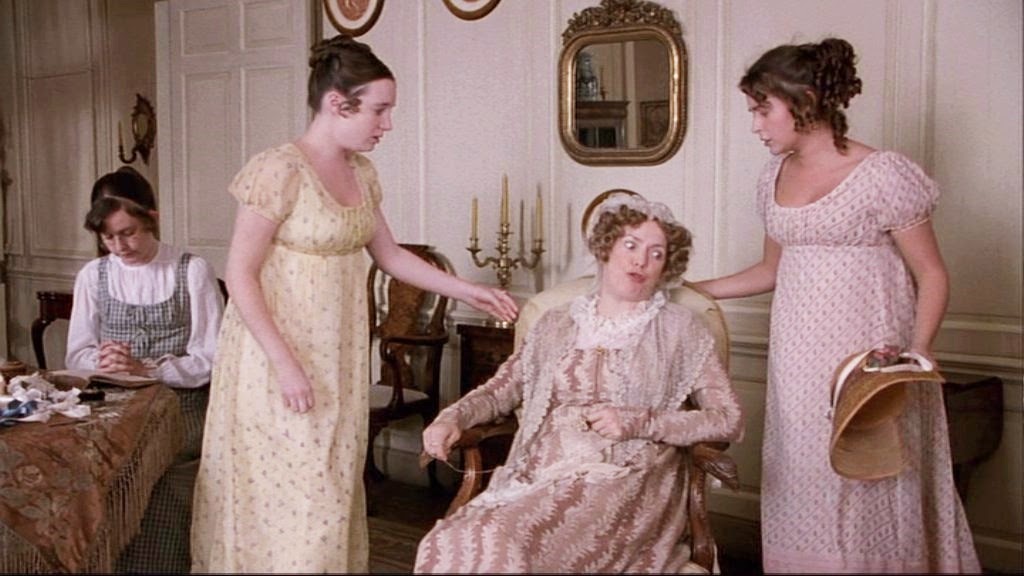Les Costumes François, Plate 3
THE MAGISTRATE AND THE SOLDIER.
The Magistrate is an Officer of the King, who has jurisdiction and authority over the people; he holds the laws, which protect the goods, the rights, and the freedom of Citizens; he daily ensures the wellbeing of the state. He must avoid balls, Spectacles, and in general all places which could affect the dignity with which he is clothed, in the area of his jurisdiction. On ceremony days, he has precedence over even gentlemen, because of the public authority in which he is clothed. His coat for the functions of his charge is a great trained closed gown, a type of uniform borrowed from universities, but elsewhere he is ordinarily dressed in black with a cloak and a collar or large cravat, as he is represented in this plate. The people of the court ordinarily treat the men of the palais as bourgeois: without a doubt they are unaware that the first Magistrates were of a great Nobility and that their descendants are found in the Parlemens. However, the Officers of the Sovereign Courts acquire Nobility to the first degree and those of the inferior tribunals to the second.
In speaking of war, some Authors have said that it is an Academy of Thieves and a school for tyrants who only breathe terror and only desire ruin, that it bathes in blood and is heated with burning Cities, that it sees the misfortunes that it occasions and that it is never diverted better than when counting the dead bodies. A Soldier is thus all the more estimable for exposing himself to all dangers for the salvation of his compatriots and for never fearing being enveloped in the same disasters by the God Mars, by whom he is persuaded that the conservation of the state requires it and that it is the will of his Sovereign, but often he enjoys no other reward than glory for the dangers to which he is exposed. A simple decoration and the bounties of the Prince are the only things that he desires. However, he enjoys the consideration of all well-born souls. He has as well the sweet advantage of being dear to beautiful women. Nothing is more gallant nor more polite than a French Officer.




Comments
Post a Comment